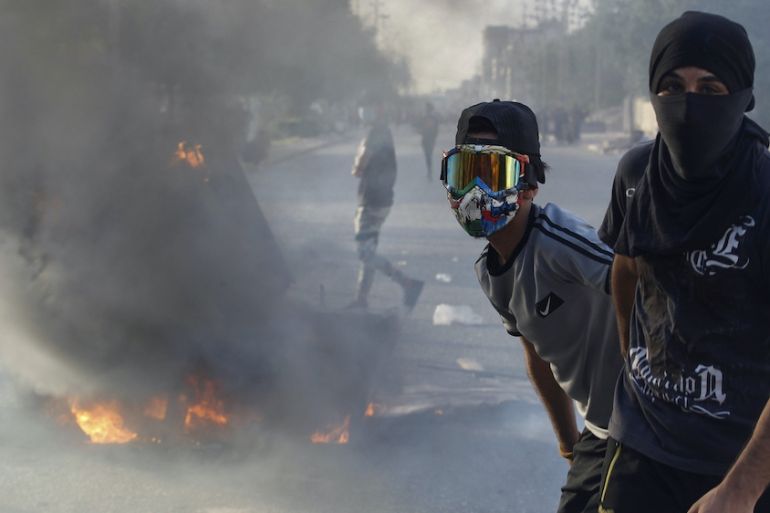IMF warns of deeper MENA recession and rising social unrest risks
The IMF now sees economic growth in the Middle East and Central Asia shrinking 4.7 percent this year.

The economic outlook for the Middle East and North Africa (MENA) was already grim as the region struggles to cope with the fallout of the coronavirus pandemic.
On Monday, that horizon darkened further as the International Monetary Fund (IMF) projected an even deeper recession for the region, and warned of the spectre of rekindling social unrest as inequality and poverty deepens.
Keep reading
list of 4 itemsBiden slaps new tariffs on Chinese imports, ratcheting trade war
One of the biggest hurdles for athletes on the Olympic path: Money
Key takeaways from Xi Jinping’s Europe trip
The IMF now sees economic growth in the Middle East and Central Asia shrinking 4.7 percent this year – a full 2 percentage points lower than its April forecast.
“The unusually high level of uncertainty regarding the length of the pandemic and its impact on firm closures, the resulting downside risks (including social unrest and political instability), and potential renewed volatility in global oil markets dominate the outlook,” the IMF said in its latest update.
The IMF said 2020 oil income for the region would be $270bn less than last year. MENA economies that are heavily dependent on energy exports have been hammered by this year’s oil price rout as coronavirus guts crude demand, and the market grapples with the lingering effects of the oil price war Saudi Arabia initiated in March.

Income from non-oil sectors was also revised downward- a severe blow to energy exporters like Saudi Arabia that are trying to diversify away from fossil fuels in order to create jobs for its youthful workforce.
The IMF did caution that there is tremendous uncertainty surrounding the outlook, depending on “the evolution and persistence” of the pandemic.
The downturn could be less severe, for example, if a vaccine arrives sooner than expected or if authorities can find a way to keep economies open and health systems functioning without reengaging lockdowns should fresh waves of infections take hold.
Still, downside risks are expected to dominate the outlook, such as a spike in cases as economies reopen forcing more lockdowns.
The IMF further warned that deep labour market scares combined with worsening poverty and inequality “could create stability challenges for governments in the region, particularly considering the high level of unemployment in some countries”.
These risks could, in turn, make it difficult for governments to unwind some of the extraordinary aid they have given their populations to help weather the pandemic.
Governments should gradually withdraw emergency support, said the IMF, in order to avoid a sudden drop in incomes and bankruptcies – which would exacerbate inequality and poverty.
And though the IMF said that “reforms will take sustained effort and time to put in place,” it makes a notable exception for crisis-wracked Lebanon, where it said “prompt and decisive reform implementation is needed across the board,” to restore economic stability.